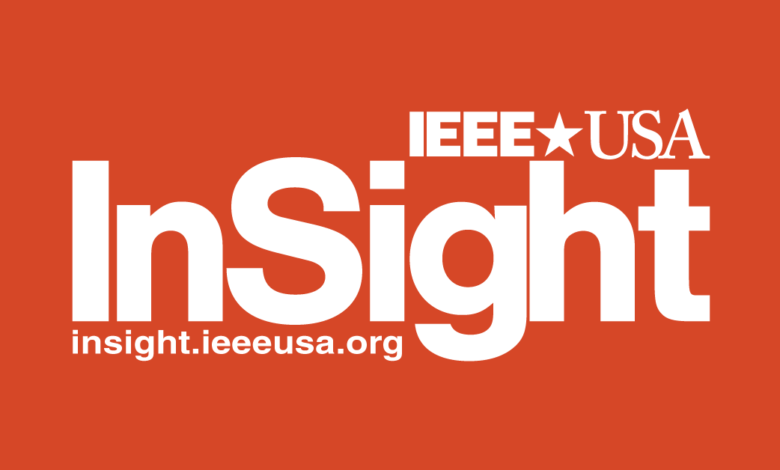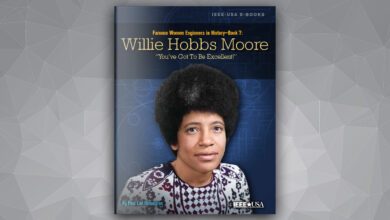
It isn’t often that engineering students influence policy and policymakers at the highest levels, while being treated as experts. This summer, I was one of 14 engineering students who did just that, in Washington, D.C. We participated in the Washington Internship for Students of Engineering (WISE)-and each student works on a technology policy issue of their choice, with the end goal a published policy paper. IEEE-USA, along with AICHE, ANS, ASHRAE, ASME, ASTM, and SAE, sponsors the program. WISE challenges students to think beyond the technical aspects of their work, and to consider the global context of engineering, preparing us for long-lasting careers.
This internship stands out-from among both technical and policy internships-because it is open-ended. The intern chose their own policy areas. We were then responsible for setting up individual meetings with policymakers, and people in the appropriate agencies and industries for our topics. We customized our internships, based on our interests and prior experiences.
As an undergraduate, I studied models for wireless networks. During WISE, I applied that knowledge to argue that a paradigm shift is needed to understand how unlicensed wireless spectrum is managed. I met with senior officials at the FCC, executives at such companies as Qualcomm, and high-level volunteers on the IEEE 802 LAN-MAN Committee. IEEE-USA also connected me with mentors who have played large roles at the FCC, and in wireless policy, who provided me with invaluable insights. I then submitted a filing at the FCC, applying my research to a current matter regarding the unlicensed bands. My filing was one of only a few giving independent analysis in a politically charged debate. The experience taught me some realities of wireless policy, and allowed me to contribute in a meaningful way.
In addition to furnishing an avenue to explore our policy interests, the WISE program advisors helped us arrange meetings with top policy influencers, both in and out of government. As a group, we met with leaders in the Senate, White House Office of Science and Technology Policy, Nuclear Regulatory Commission, Department of Homeland Security, State Department, National Science Foundation, and several interest groups. Each meeting gave us an opportunity to discuss critical technology policy issues with the experts. We also attended bill markups, congressional receptions, numerous think-tank events, and were in the center of D.C. during one of the most momentous summers in government in recent history.
One of the strongest realizations we reached was that though engineers are a tiny minority in D.C., we have an important role to play in policy. We have insights not available to even the extremely intelligent lawyers who work on these issues every day. As science and technology problems on such issues as automation, energy, cybersecurity and climate change increasingly dominate public debate, it is critical that those with technical backgrounds engage with policymakers to design effective solutions. Many of us had meetings where we were treated as the experts, due to our backgrounds. For example, I met with a congressional legislative director who had just held a meeting with all the primary stakeholders surrounding my issue. Instead of asking questions, I spent much of the meeting sharing my views, and explaining some of the technical components of the debate–from an independent perspective.
Finally, what made the program invaluable was that the intern class was diverse. D.C. is said to be the only place in the United States where you will find at least one person from every district, nook, and cranny in the country. This year’s intern class was a microcosm of D.C., in more ways than just geographic. The intern class included those about to start engineering jobs and grad school; those with patents and their own startups; and those who are well-travelled, who have much work experience. It included different engineering majors, and people from all over the political spectrum. These differences led to numerous engaging discussions about policy. In surroundings where it is likely to spend time only with those like you, this WISE intern program proved to us the benefits of discussing issues with those who are not.
Though coming from disparate backgrounds, all of us left with an indelible belief in the value of seeking opportunities that will provide a greater context to our engineering educations-whether in business, policy, or the arts. I encourage anyone interested in the WISE program to apply at https://ieeeusa.org/public-policy/wise/.
On an end note, it is not the only program that provides such a fulfilling experience. I encourage you to explore, and find your own ways to be an active participant in the world outside engineering.
Nikhil Garg is an entering MS/Ph.D. student in electrical engineering at Stanford University. He graduated from the University of Texas at Austin, with a B.S. in Electrical & Computer Engineering, and a B.A. in Plan II in 2015. He can be reached at nkgarg@stanford.edu or gargnikhil.com.






